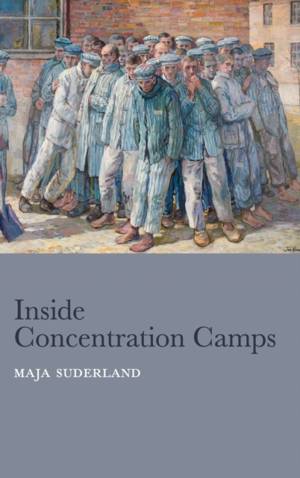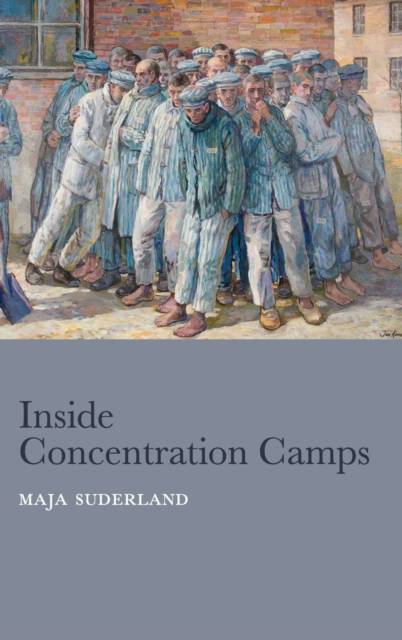
Door een staking bij bpost kan je online bestelling op dit moment iets langer onderweg zijn dan voorzien. Dringend iets nodig? Onze winkels ontvangen jou met open armen!
- Afhalen na 1 uur in een winkel met voorraad
- Gratis thuislevering in België vanaf € 30
- Ruim aanbod met 7 miljoen producten
Door een staking bij bpost kan je online bestelling op dit moment iets langer onderweg zijn dan voorzien. Dringend iets nodig? Onze winkels ontvangen jou met open armen!
- Afhalen na 1 uur in een winkel met voorraad
- Gratis thuislevering in België vanaf € 30
- Ruim aanbod met 7 miljoen producten
Zoeken
€ 127,45
+ 254 punten
Omschrijving
Terror was central to the Nazi regime, and the Nazi concentration camps were places of horror where prisoners were dehumanized and robbed of their dignity and where millions were murdered. How did prisoners cope with the brutal and degrading conditions of life within the camps?
In this highly original book Maja Suderland takes the reader inside the concentration camps and examines the everyday social life of prisoners - their daily activities and routines, the social relationships and networks they created and the strategies they developed to cope with the harsh conditions and the brutality of the guards. Without overlooking the violence of the camps, the contradictions of camp life or the elusive complexity of the multicultural prisoner society, Suderland explores the hidden social practices that enabled prisoners to preserve their human dignity and create a sense of individuality and community despite the appalling circumstances.
This remarkable account of social life in extreme conditions will be of great interest to students and scholars in history, sociology and the social sciences generally, as well as to a wider readership interested in the Holocaust and the concentration camps.
In this highly original book Maja Suderland takes the reader inside the concentration camps and examines the everyday social life of prisoners - their daily activities and routines, the social relationships and networks they created and the strategies they developed to cope with the harsh conditions and the brutality of the guards. Without overlooking the violence of the camps, the contradictions of camp life or the elusive complexity of the multicultural prisoner society, Suderland explores the hidden social practices that enabled prisoners to preserve their human dignity and create a sense of individuality and community despite the appalling circumstances.
This remarkable account of social life in extreme conditions will be of great interest to students and scholars in history, sociology and the social sciences generally, as well as to a wider readership interested in the Holocaust and the concentration camps.
Specificaties
Betrokkenen
- Auteur(s):
- Uitgeverij:
Inhoud
- Aantal bladzijden:
- 300
- Taal:
- Engels
Eigenschappen
- Productcode (EAN):
- 9780745663357
- Verschijningsdatum:
- 4/11/2013
- Uitvoering:
- Hardcover
- Formaat:
- Genaaid
- Afmetingen:
- 157 mm x 229 mm
- Gewicht:
- 635 g

Alleen bij Standaard Boekhandel
+ 254 punten op je klantenkaart van Standaard Boekhandel
Beoordelingen
We publiceren alleen reviews die voldoen aan de voorwaarden voor reviews. Bekijk onze voorwaarden voor reviews.











